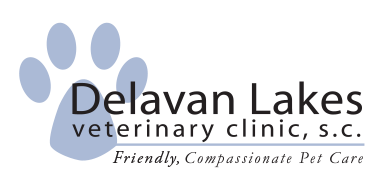Canine Influenza Update
December 22, 2015:
On December 8th, 2015 four dogs were confirmed in Dane County (Madison, WI area) having been infected with the Canine Influenza virus. This is in addition to the cases reported in July 2015 in Walworth County and this past spring in the Chicagoland area.
The good news is that a new vaccine has now been made available to help protect against the new strain (H3N2) of Canine Influenza. We are recommending this new vaccine be administered because of the cases in Walworth County and the Chicagoland area were typed as the H3N2 strain.
Previously only the H3N8 Canine Influenza vaccine was available, and was recommended that it be administered in the hope of cross-protection. As of this update the Dane County cases have not had the strain identified, but officials are confident that it is the H3N2 strain. We encourage our clients to contact our office for more information.
The information in regards to this outbreak is growing and changing as the veterinary community continues to track its effect on our dog and pet population.
The following is previously known information and recommendations as it pertains to our pet population, which has been provided to us by the Wisconsin Veterinary Medical Association.
Canine influenza virus (CIV) has affected numerous dogs in Illinois, Wisconsin, Ohio, and Indiana since this spring, including several reported cases in Walworth County. Previously thought to be caused by the H3N8 strain, which has been circulating in North America since 2004, recent tests from the Wisconsin Veterinary Diagnostic Laboratory (WVDL) and the New York State Animal Diagnostic Laboratory at Cornell University have identified the strain as H3N2.
“It’s believed that the H3N2 strain was introduced here from Asia,” says Keith Poulsen, WVDL diagnostic and case outreach coordinator and clinical assistant professor at the UW School of Veterinary Medicine (SVM). “The commercially available vaccines for CIV are made to protect against the H3N8 strain, and their effectiveness against the H3N2 strain is unknown at this time.”
Both CIV strains can cause persistent cough, runny nose, and fever. A small percentage of dogs will develop more severe clinical signs, and some will not show any symptoms at all. The infection has been associated with some deaths. Currently, there is no evidence that either CIV strain is contagious to humans; however, H3N2 has caused infection and respiratory illness in cats.
At this time, there is no evidence that either CIV strain is related to the highly pathogenic H5N2 avian flu, which was recently reported in a commercial flock in Jefferson County; they are completely different strains that affect separate species.
Here at DLVC we currently do have Canine Influenza vaccine to vaccinate dogs. We are recommending vaccination for any at-risk dogs. Any dog that frequents dog boarding facilities, dog parks, comes in contact with unknown vaccination status pets, dogs traveling to or from the Chicagoland area, or dogs that may come into contact with dogs from the Chicagoland area.
Other recommendations as it pertains to the Canine Influenza are washing your hands and changing your clothes if you work with or are exposed to sick dogs before handling your own pets at home. Soap and water is very effective at inactivating influenza virus.
If at any time questions arise to the health and care of your pets, please do not hesitate to contact us at Delavan Lakes Veterinary Clinic at 262-728-8622.

